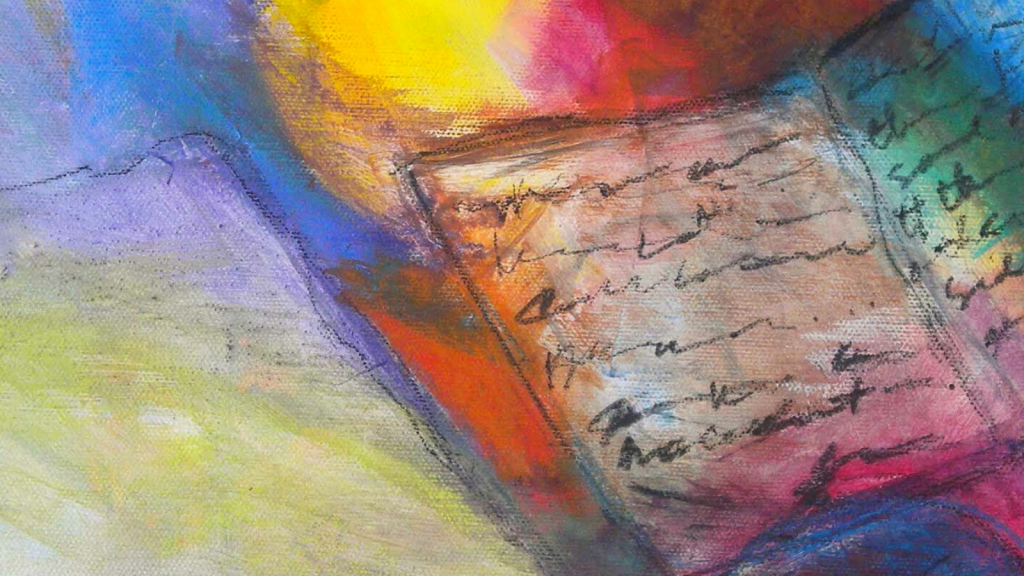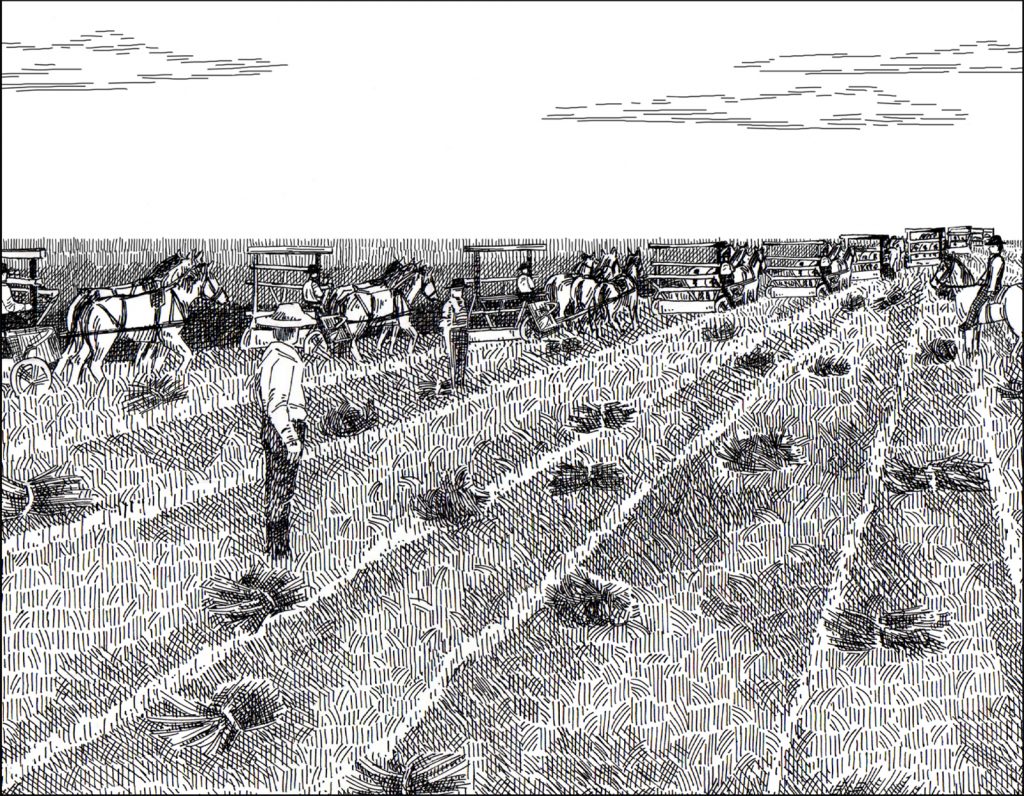Translated from the Spanish by Charles LeBel
Its first victim was my friend David. He was planning to retire and dedicate himself to writing. He told me that the flesh was weak and now that he was getting old, he’d gotten the itch to make himself immortal. Despite the clichés, I was relieved to learn that, in a circle as prosaic as ours, I wasn’t the only one with literary proclivities, so I pulled out the courage from where I’d stashed it away for years to show him my only manuscript that I judged to be more or less presentable. I won’t give any details about the story, but I will note that it was sad (it wanted to be), and the underlying theme had to do with how fragile and fleeting we men are, whether we like it or not, dreaming of creative grandeur or accepting it as a fairly impractical enterprise. One day, after a friendly chat about our personal lives and the luck we’d each had with our respective patient wives, David read the seven pages I handed him. He did it in silence while I struggled not to scrutinize him too much, alert to the slightest change of expression, sipping coffee with eyebrows arched and smoking like a man on death row, cigarette after cigarette, butt to tip, tip burning down to butt, then again butt to tip. Smoke and more smoke. When he finished he said that it had impressed him—my story, not my Bogart or Belmondo impression.
“Damn! I can smell the maturity…If I didn’t know you’d stolen time from other duties, I’d swear your pages were those of a professional. I sure wish I could write so naturally, as if without thinking, about something that’s so close to us all.”
The compliments left me ecstatic (and I blush while saying so; if I fail to omit the details that feed my human vanity it’s because they are necessary to understand my circumstances: vraisemblance, they call it). What a joy to have never before had a reader and to come across one who immediately puts me on a pedestal. I even felt vertigo. Calm yourself, I repeated who knows how many times. David is a generous guy: you shouldn’t be surprised that he’d rather fill you with praise than break your heart; since you’ve got no talent, he wants to indulge you with at least a couple hours of happiness. In exchange, I promised I’d read the retiree’s complete works right away.
A month after our repartee he left the company and, a month after that, I found out that he’d been admitted to a hospital. He’d been feeling ill beforehand; one can’t help but have minor ailments at seventy. One day, though, in the middle of a family gathering, he fainted. Tests revealed grade IV brain tumors, malignant and fast-growing, so bad that I never really had a chance to talk to him. The times I called him at the hospital his relatives would answer and explain that David was in therapy at the moment, or he was in for surgery, or he was asleep. In the hours I spent thinking bitterly about that friend I was cut off from, I started reading about cancer, the brain varieties in particular. These, it seems, cause only two percent of the deaths associated with cancer.
David joined that meager percentage and I went to the funeral.
That’s how I lost my first reader. I recuperated by writing, which is the only thing we aspiring writers know in terms of medicine.
As one does tend towards naivety, I found a second reader. Nelson did not work with me: he knew little about statistics. We met at the public library. At first, I noticed an older man taking books out two at a time, four at a time (uncommon in our town). He noticed me taking out my four, my two. We spoke one afternoon in the stairwell, at greater length another afternoon, on the couches. He turned out to be a retiree who used to teach literature at the university. He talked about Ms. Writer X and Mr. Author Y, Johns and Janes I’d never heard of but who were the daily bread of the classroom. I went no further than Boccaccio, Balzac, Dickens, Chekhov, Eça de Queirós. He must have forgiven my ignorance; all I know is that he smiled kindly when I mentioned offhand that I wrote in my spare time. On top of the smile he added, Well then! I’d love to read something of yours. I didn’t put up a fight: What a coincidence, I just happen to have one of my manuscripts on me. I had it in my pocket; I unfolded it and Nelson asked me to read it to him. We went over to one of the remotest tables in the library hall, where no one would bother us.
“Bravissimo!” he exclaimed when I finished.
Getting the tenor’s or prima donna’s treatment surprised me; I wished that I could never die so as to never stop writing. There were other interjections that cut right to the grain, and then his comments became more oblique. In an attempt to better communicate his impressions, he evoked a certain South American visual artist, whose name I didn’t catch, who had done an exposition without any paintings or sculptures: all the visitor had to look at was an open coffin in the middle of the room; at the bottom of the coffin was a mirror, and reflected in the mirror, stranger still, was the visitor.
Nelson concluded, “How can it be that you’ve never been published, writing like that! Your story is profound! It brings us face to face with features that we cannot see but which we are.”
However pompous, these words shook me. What I’d read him was nothing more than nonsense put to paper in my free time, sheltering my hope that life would not always be what it had been until now, a good life in the dullest sense of goodness. I told him that one day I’d dare submit the story for some magazine to consider. Between topics we got personal; we spoke of our first marriages, divorces, second marriages, children all grown up: primed, prepared, dropping a line now and then. We exchanged phone numbers (I wasn’t going to let this reader get away; as soon as I finished fixing the story in question, I had a whole ream of manuscripts in need of a bravissimo).
Three weeks after our last chat, I noticed that I hadn’t run into Nelson at the library again. I wondered if it might be time to give him a call. The information provided to me by the librarian I trusted most confirmed that Nelson’s absence was indeed suspicious: he owed books. I feared the worst; I called that night, at dinnertime. To my relief, I was not answered by Nelson’s widow, as my morbid fantasies would have it, but by the man himself. He greeted me with characteristic zeal but, after a few minutes, his tone changed and he gave me the bad news: his doctor had diagnosed him with colorectal cancer. As I later learned, this is the third most common and the second most deadly cancer type in the hemisphere. Nelson had been waiting for surgery. He was being admitted to a clinic the following morning.
As with the story that I’d read to him, his did not end happily. He lasted three months. I lamented losing more than a reader: in the previous days I’d done nothing but think about the tick-tock of empty solitude once you know that death exists.
I became nervous and I smoked, smoked, smoked up a veritable curtain of smoke. Soon I noticed that even without thinking about it I’d fashioned a homespun superstition that, lacking the prestige of spooky numbers or umbrellas opened indoors, still frightened me: my virgin oeuvre was killing
people.
I didn’t delay in sharing this suspicion with my wife. Norma was bewildered. She could not believe that the person she’d lived with for thirty years could be so irrational. Boy, what a crock: it doesn’t suit you. After the heart and, I guess, car accidents, cancer is the most common cause of death; don’t you think it’s normal that two retirees got it? I thought you knew a thing or two about statistics…Following the indignation, she softened and tried to comfort me. She suggested that I show her the story.
“How is it, by the way, that you asked strangers for their opinions first? You don’t think I’m smart enough, is that it?”
According to real writers, we all have a heart of hearts; in mine, I was certain that what Norma asked of me was dangerous. But her arguments and, most of all, her insistence gave me pause. She was right: it was ridiculous for a man of my wits to act like a yahoo. How’d it get into my head to ascribe such terrible powers to a handful of pages?
With the same shyness with which I’d confided in David and Nelson, I gave her the manuscript. When she finished reading, there were tears in her eyes. She hadn’t known that I was capable of writing like that: it didn’t sound to her like some amateur’s story, but like a real professional’s.
I was moved, in turn, because she wasn’t lying: in many lovers’ spats not to be mentioned here, she had been sincere. In the long run, her raw truths had helped us to stay together and even to be satisfied in doing so.
When I saw that she couldn’t stop crying, pages still in hand, I asked her what was the matter.
“It’s that it seems like I don’t know you as well as I thought…I don’t know if I know you.”
I don’t know if I know you: that’s what she repeated more incoherently in her final moments. Thirteen months had passed since the night she read my story, and eleven since they found her pancreatic cancer, first manifesting as jaundice and then being mistaken, more than it should have, for the diabetes she’d had for years.
And so I’m left alone. I feel now, and I think and act, from a place of widowhood with the texture of ash—smoke and smoke. The evidence, for me, is sufficient: there are no superstitions, only means taken against invisible menaces. Shredding my manuscript would not be enough to quell my fear; someone else, someone with talent this time, would come up with a similar idea and write some version of my story, someone with a bit more luck, more literary merit and, who knows, maybe a good agent; a big publisher would distribute it and the audience would be huge. There, beating with its systoles and diastoles, is a possible genocide. My conscience will not let me be at ease; it has persuaded me that I can prevent the occurrence of something so monstrous. That is why I am here committing to print, at my own expense, this wicked little tale. My decision seems to obey a tortured logic; how can I stop my prose from wreaking further havoc? The explanation goes without saying: too much is published these days. In this haystack I place my humble needle, with all rights reserved.
I will never be more than a minor writer and my readers, if indeed I ever have any, will be few.




